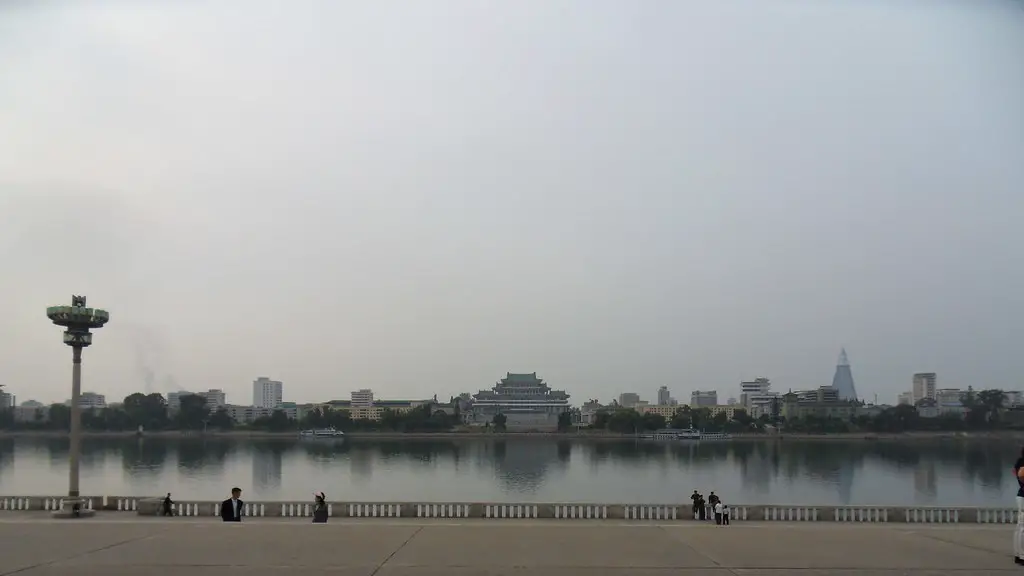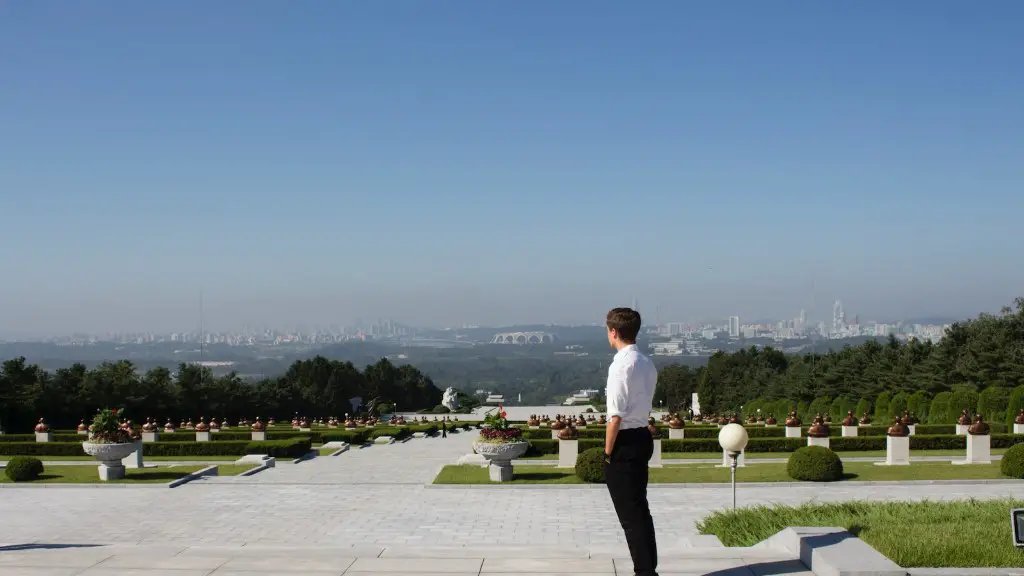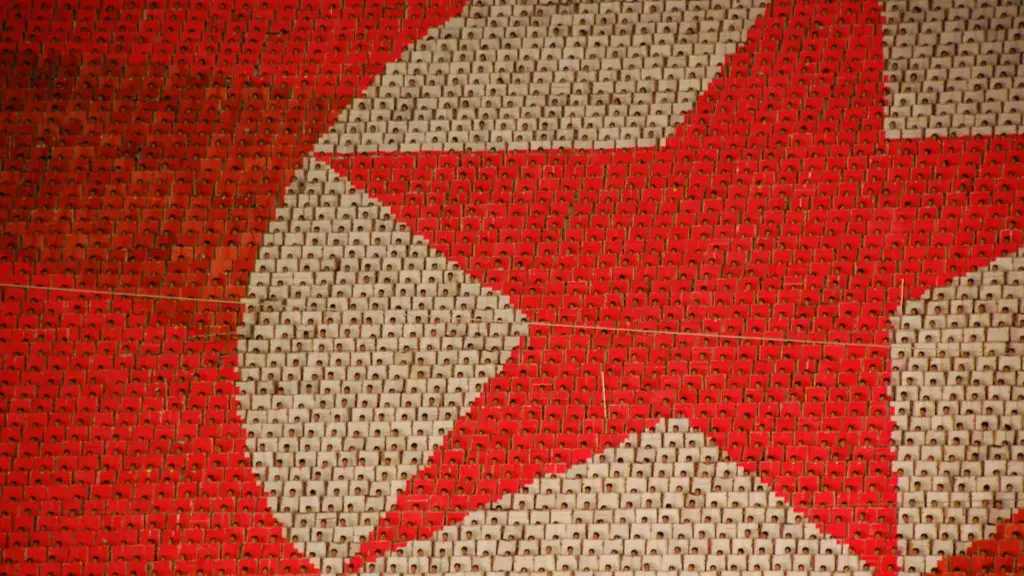Introduction
Life in North Korea is unique compared to that of many other countries in the world. The government of the Democratic People’s Republic of Korea (DPRK), commonly referred to as North Korea, is a highly authoritarian and militarized regime that strictly enforces a collection of state-controlled economic, social, and political policies. In the DPRK, the control of public and private life is in the hands of the ruling Workers’ Party of Korea. Foreign media is heavily regulated and citizens have a limited access to the outside world, resulting in a culture and lifestyle that many people find unfamiliar and even unsettling.
Social Control
One of the most remarkable aspects of life in North Korea is the strict control exercised by the government. Every aspect of social life is closely monitored and regulated. North Koreans have little or no exposure to outside cultures and ideologies, which can be seen in their lifestyle, values, and beliefs.
The government also maintains strict control over its population. There is a system of extensive surveillance throughout the country that includes military forces and police in every town and village. The authorities also use informants and informers to watch for unauthorized activities. This system of surveillance and control is enforced by the use of severe punishments, including imprisonment, torture, and even death.
Economic System
North Korea’s economic system is highly centralized and highly restrictive. The government controls all economic activity, with almost all economic decisions being made by the state. Private enterprise is largely prohibited, and most economic activity is organized through state-owned enterprises and collective farms. As a result, most North Koreans lack access to basic goods and services and live in poverty.
The government maintains a system of rationing, in which citizens receive a limited number of basic goods each month. The rationing system has contributed to chronic food shortages, and the lack of adequate nutrition has had a significant impact on the health and well-being of the North Korean people.
Lifestyle and Culture
The lifestyle of North Koreans is often described as monotonous and oppressive. People in North Korea have limited freedom of movement, little access to the outside world, and a limited range of activities. Most people do not have access to television, radio, or the internet, and the few cultural activities available are closely monitored by the government.
The government maintains strict control over art, literature, and music. All forms of art are closely monitored for content that is deemed to be inappropriate or counter to the official ideology of the state. Cultural diversity is also largely suppressed in North Korea, with only a few minority cultures receiving limited recognition.
Control of Foreign Media
North Korea’s strict control of foreign media is a major factor in its isolation from the outside world. The government has a near-total ban on any form of communication with the outside world, including television, radio, print media, and the internet. North Koreans are forbidden from accessing foreign websites, and all foreign media is heavily censored.
The government has also enacted laws that restrict the importation of foreign books, magazines, and newspapers. Furthermore, foreign media is forbidden in workplaces and on public transportation. This system of controls has resulted in North Koreans having a very limited exposure to the outside world.
Political System
The political system of North Korea is highly authoritarian and militaristic. The government is controlled by the ruling Workers’ Party of Korea, which is led by the Supreme Leader, Kim Jong-un. All other political parties are banned. The government maintains strict control over the media and public discourse, and criticism of the state is not tolerated.
The government also maintains a policy of “juche”, which is a commitment to economic isolationism and self-reliance. This policy has caused North Korea to remain largely isolated from the rest of the world, with little in the way of foreign investment or engagement.
Human Rights Abuses
The government of North Korea is well known for its human rights abuses. Political dissidents are often subjected to harsh punishments, including imprisonment in labor camps, torture, and even execution. The country also maintains a system of nationwide surveillance and control over its citizens, and citizens have limited access to basic civil and political rights.
North Korea also has a system of harsh punishments for those caught trying to flee the country. The borders of North Korea are heavily guarded, and those caught attempting to cross into neighboring countries are subject to imprisonment, hard labor, and even execution.
Effect on Everyday Life
The restrictive and oppressive nature of North Korea’s government has had a significant effect on everyday life. The economy is heavily controlled, leaving most people in poverty and lacking access to basic goods and services. The lack of freedom of speech, movement, and assembly have further limited people’s ability to live their lives as they choose.
The political and economic systems also have a significant impact on the culture and lifestyle of North Koreans. They have limited exposure to outside cultures, ideas, and beliefs, resulting in a culture and lifestyle that many find unfamiliar and unsettling.
Conclusion
Life in North Korea is harsh and oppressive. The government of the DPRK maintains a strict control over its citizens, and opposition is not tolerated. The economy is highly restrictive, leading to poverty and food shortages. Foreign media and cultural influences are tightly regulated, leading to a highly isolated citizenry. All of these factors have a significant effect on the daily lives of the North Korean people.


